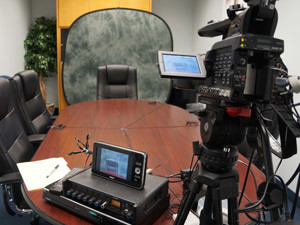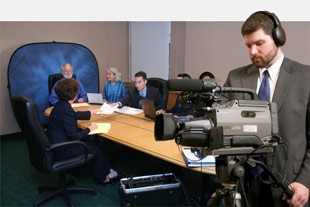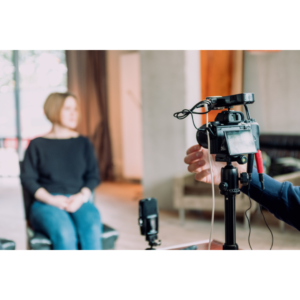Professional Legal Videography to Enhance Evidence Presentations.
Professional Legal Videography to Enhance Evidence Presentations.
Blog Article
The Role of Lawful Videography in Depositions and Tests
Legal videography has emerged as a necessary tool in both depositions and trials, supplying a complex approach to documenting witness testimonies. As legal specialists significantly acknowledge its value, it triggers a deeper examination of exactly how these aesthetic records can affect juror understandings and trial results.

Significance of Legal Videography
Legal videography plays a pivotal function in the documentation and presentation of depositions and trials. This specialized area combines technical abilities with legal expertise to develop a reliable record of procedures that can considerably influence case outcomes. The aesthetic element of legal videography improves the understanding of witness testament, permitting jurors and judges to observe not only the spoken words however likewise the attitude, feelings, and body language of the witnesses.
In enhancement, legal videography gives an objective account of events, decreasing the capacity for false impression that can accompany written records alone. This visual documents acts as a critical device during test presentations, facilitating a more clear and more persuasive story for both plaintiffs and offenders. Furthermore, the capability to replay video sectors throughout court proceedings allows lawful teams to highlight essential factors, enhancing their disagreements efficiently.
The relevance of lawful videography extends past the court room; it also plays an essential role in preserving evidence for future referral, whether for allures or more legal activity. Its integration right into the legal process is crucial for guaranteeing a reasonable and exact depiction of the facts, eventually contributing to the quest of justice.

Refine of Legal Videography
While catching the subtleties of depositions and tests, the procedure of legal videography involves a number of essential steps that make sure top quality, precise recordings. Initially, a professional lawful videographer prepares by evaluating the situation materials and comprehending the certain demands of the deposition or trial. This preparation includes acquainting themselves with the participants and the context, which assists in capturing significant details.
On the day of the recording, the videographer establishes up the essential equipment, which usually includes high-def cameras, microphones, and appropriate lights. Guaranteeing optimum angles and sound high quality is essential, as it directly impacts the performance of the recording. The videographer connects with lawyers and participants to develop procedures, ensuring that everybody comprehends the recording procedure.
Throughout the deposition or test, the videographer thoroughly records the procedures, paying close attention to both spoken and non-verbal hints. This includes recording the demeanor and reactions of witnesses and attorneys. After the session concludes, the videographer might edit the video footage for clarity and compliance with lawful criteria, creating an end product that properly reflects the process for future reference and usage in legal contexts.
Benefits in Depositions
The incorporation of videography in depositions provides many benefits that improve the overall procedure of collecting evidence. One primary benefit is the capability to capture witness testaments with visual and acoustic integrity, providing a more accurate representation of the witness's disposition, tone, and body movement. This multidimensional approach permits lawyers and courts to analyze reputation better than standard written transcripts alone.
In addition, videographed depositions offer as a powerful device for preserving statement. Should a witness ended up being not available for trial, their taped deposition can be played in court, guaranteeing that their evidence remains obtainable and relevant. This aspect considerably reduces the risk of shedding vital information that could influence case outcomes.

Finally, videography improves the general professionalism and reliability of the deposition procedure, instilling self-confidence in customers pertaining to the thoroughness of their legal depiction (legal videography). By leveraging modern technology, attorneys can significantly improve the efficiency of depositions
Effect On Tests
In numerous trials, the assimilation of videography can significantly affect the discussion of evidence and the jury's perception. Legal videography catches witness testimonies and important evidence in a dynamic format, permitting jurors to engage with the material on numerous levels. This aesthetic part improves the storytelling element of a trial, providing context and psychological vibration that typical text-based evidence might lack.
Moreover, video clip recordings can act as effective tools for impeachment throughout interrogation. When disparities arise between a witness's previous declarations and their courtroom statement, video evidence gives an objective reference that can guide jurors' viewpoints. This immediacy and clarity can boost the trustworthiness of an event's story while all at once undermining opposing debates.

Future Trends in Legal Videography
As we look toward the future of lawful videography, several emerging patterns guarantee to improve its function within the court room. One substantial pattern is the integration of expert system (AI) in video evaluation and editing. AI can simplify the process of determining key minutes in taped depositions, enabling lawyers to swiftly access relevant web content, consequently enhancing efficiency in instance preparation.
Furthermore, the rise of find out virtual truth (VIRTUAL REALITY) and enhanced fact (AR) innovations is anticipated to change just how jurors experience proof. legal videography. By immersing jurors in a substitute atmosphere, these technologies can provide an extra extensive understanding of complex scenarios, bring about more educated considerations
Additionally, the enhancing need for remote depositions, accelerated by the COVID-19 pandemic, will likely continue. Lawful videographers will certainly need to adjust to new software and systems to make sure high-quality recordings in online setups.
Finally, the expanding focus on information safety will certainly demand more stringent methods for storing and sharing video clip evidence. As the legal landscape develops, lawful videographers need to remain abreast of these fads to keep their relevance and efficiency in the judicial procedure.
Final Thought
In recap, legal videography offers a crucial function in the judicial procedure, improving the honesty of depositions and tests. By recording the nuances of witness statements, this medium not just protects important evidence yet also help in providing info effectively to jurors. The significance of aesthetic documents in examining reliability and helping with cross-examination can not be overemphasized. As innovation proceeds to progress, legal videography is poised to further transform its role within the lawful landscape.
Report this page